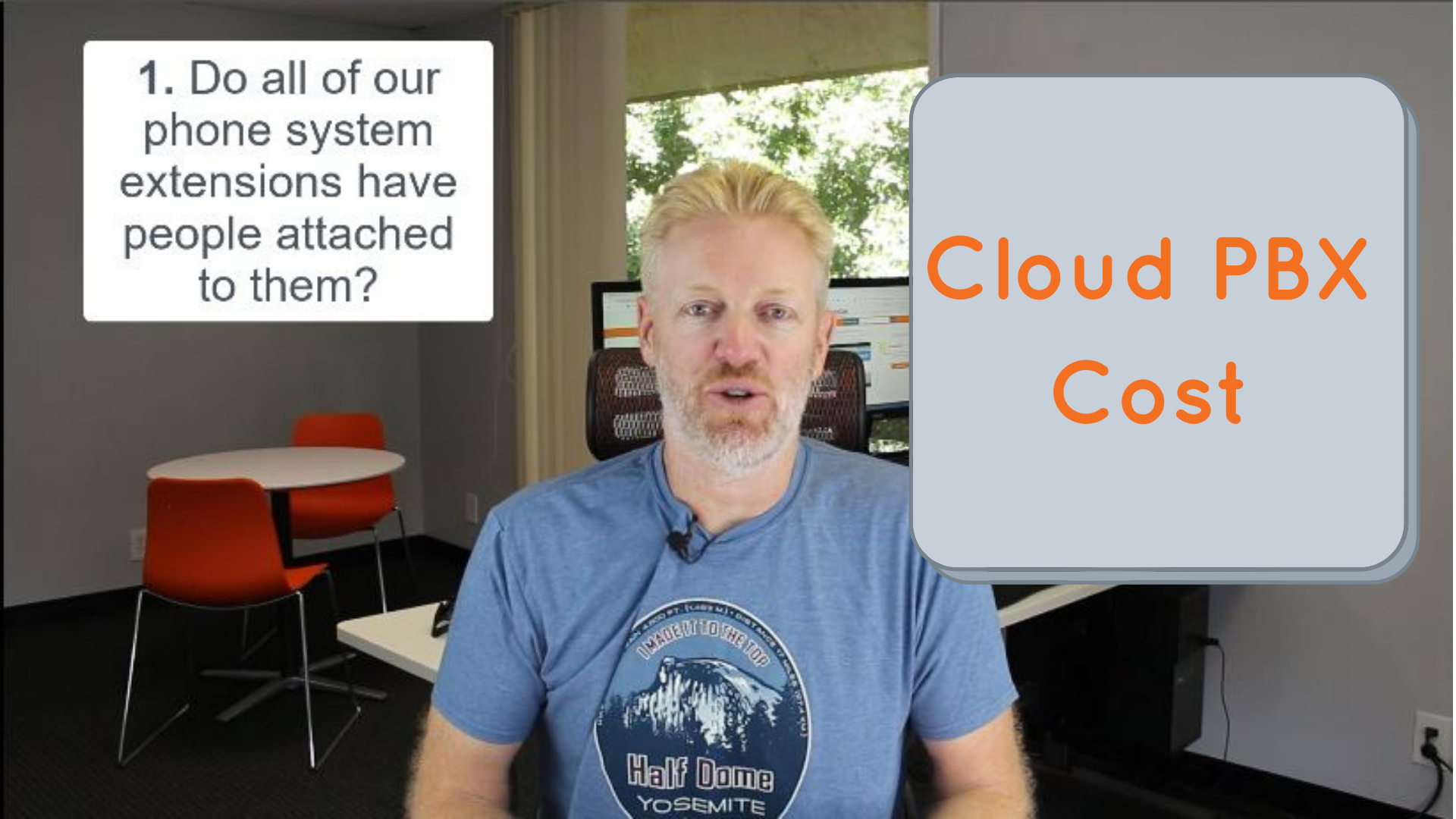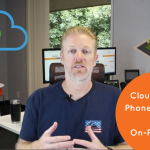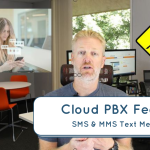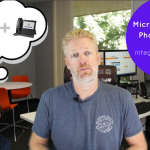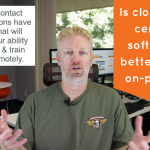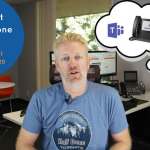How much does cloud PBX cost?
Good news! There are hundreds of cloud PBX vendors…
Bad news! …and many have different pricing structures.
Some cater to large companies… some cater to small. Some include all features standard… others have different tiers. Some include call paths… some price those separately.
In this video, AeroCom President, Mike Smith, gives you 5 key questions to ask, that will help your company find the best pricing for your specific requirements.
Which cloud PBX options should your company explore? Click below and ask Mike today.
About Mike
Mike Smith is the Founder and President of AeroCom and has been helping companies with telecom and cloud services since 1999. He has been the recipient of numerous business telecommunications industry awards and in 2011, he was honored as one of the top 40 business people in Orange County, CA., under 40 years old. You can also hear him as the host of the popular Information Technology podcast, ITsmiths with Mike Smith. Follow Mike on LinkedIn, Twitter or SpiceWorks.
Transcript
So your company is looking into getting a new phone system, and of course, you’re looking into Cloud PBX and you’re wondering how much does this cost?
“Hey, everybody’s starting to go to cloud PBX, it seems, but is it too expensive? Is it really cheap? How much does it really cost? And what is good pricing when it comes to a cloud phone system?”
Well, in my experience, I’ve been working in this industry for over 20 years and I’ve been selling Cloud PBX since the year 2000, which is before anyone ever even knew it existed. So I know quite a bit about it, I know all the major service providers out there that are offering it, and I can tell you there’s a lot of differentiation when it comes to how they structure their pricing.
So when it comes to Cloud PBX pricing, there’s five things that you want to keep in mind.
So the number one thing you want to keep in mind is, do all of your phone system extensions have people associated with them? Meaning that how many extensions do you have that are just what I’d call, “Common area” phones, like a conference room, or a lobby phone, or a warehouse phone. How many extensions do you have that actually need a person, that might need a soft phone and voicemail and some bells and whistles and things like that. So you really want to differentiate how many common area extensions do you have that just need a live extension number for people to reach that extension, versus how many actual users do you have? Because there’s different prices sometimes associated with each; sometimes users cost more than common areas. So you want to definitely think about that right away, and if you have a lot of common area phones, you might want to find a service provider who’s less expensive for common area phones than they are for users, and sometimes it might even just be maybe low usage extensions. So maybe some people in the office who don’t really ever use the phone, maybe those people you want to find providers that can price them out at maybe half the cost for a low usage extension, maybe cap their minutes? There’s definitely providers that’ll do that. So that’s the first thing you want to think of.
The second thing you want to think of is kind of the most obvious one, it’s really, what features do your employees need? So how many folks in your office really need advanced features? Are there some call center applications going on within your company? Are there supervisors to that call center? Does anybody need fancy features like they want to be able to send and receive text messages from their phones? Or maybe they want to record calls on demand? Or maybe they want some good reporting where they can follow up on their salespeople and see if they’re making phone calls? Or maybe just everyone in the office just needs to be able to send them receive calls, you don’t need any features? So really get a grasp on what types of features your organization needs, because it really makes a difference in terms of pricing. Some providers include a standard seat with all the bells and whistles included, and it’s one price, one size fits all, which is great if you need a lot of features while other service providers have different tiers of seats. So they have really inexpensive seats that are kind of bare bones in terms of features, and they have a really expensive seats when it comes to users that need kind of everything. So get a grasp on that prior to going shopping.
The third thing I want to talk about when it comes to pricing for hosted PBX solutions is cloud call path pricing. What I call, “Unbundled” call path pricing. So what this means is that, well, I guess I should say most cloud solutions price you maybe between, I’d say roughly $20 a month, $18 a month, depending on how many users you have, you can get some volume discounts in there, but typically they price you around that price range, 18, $20 a month per user, and every one of those users gets at least one call path, if not two, meaning that, say you have 500 employees and you have 500 users on that system, you can have 500 to a 1000 simultaneous calls taking place without anybody getting a busy signal. That’s typically the way most cloud phone system solution price out. However, you’re probably wondering why the heck would a company with 500 employees need 500 to 1000 simultaneous call paths? I’m wondering the same thing; they don’t need that many. So it’s total overkill. You don’t need to pay for that many call paths.
For that reason, there are some Cloud PBX service providers out there that separate user licenses from call paths, and what they do is they give you a drastically discounted per month, per user cost for a user license, and then charge you for a call paths separately. So maybe they charge you anywhere from five to $10 per month per user, instead of 18 to $20 per user. And they charge you maybe 15, $20 per month or $30 a month per call path that your company needs. So with 500 employees, your company might only need like a hundred call paths. Maybe no more than 100 simultaneous calls ever take place. So you do that math of pricing that out at 18 to $20 per user, we’re pricing it out at five to $10 per user and $20 a month per call path. It’s much more cost-effective if you do what I call the, “Unbundled” call path pricing. So just something else to think about.
Another call path related or calling related pricing issues, you want to maybe consider metered pricing. Go back old school, some companies still offer metered seats. So they don’t charge 18 to $20 per month per extension, they maybe charge $5 a month per extension, and they just charge you for your outbound long distance usage, or maybe your local usage. Maybe they give you unlimited local and they charge you per minute for long distance and international. So you just pay per minute, so instead of having unlimited outgoing calling, maybe you just pay per minute, and see where you end up, maybe analyze how many minutes you’re using today, and see if it might be worth doing? There’s a handful of providers that still offer that.
And last but not least, the fifth thing I wanted to bring up in terms of pricing with Cloud PBX is there are another small handful of providers out there who offer call-path-only pricing. So similar to the third thing I talked to you about with unbundled call path pricing, these service providers take it to the next level and they only charge you for call paths, and they allow you to have unlimited extensions for free. So what they do is they may be charged around $40 per month per call path, and let you have unlimited extensions. So say in that scenario where you have 500 phone system extensions and you only need 100 call paths, they would charge you $40 per month, per call path for those 100 call paths, and then you could have your 500 extensions. In fact, you could have 1000 extensions and the cost would still be exactly the same. So a good option to look at if you’re a company that has a lot of extensions and doesn’t need a lot of call paths.
So those are some different points on Cloud PBX pricing. I hope that was helpful, but there’s still so much more to know when it comes to Cloud PBX services. So instead of Googling all that stuff or trying to find out which Cloud PBX service providers are the best for your company to quote, just reach out to me ([email protected] 714-593-0011), don’t start Googling it, you’ll be online all day long, and you’ll end up in the wrong spot anyway. Our company is a broker for all of the major Cloud PBX service providers, so if I ask you a few questions about your company’s requirements, I can tell you probably a good handful of Cloud PBX solutions that I recommend you quote and why. So I can get you to where you want to go a lot faster, and you don’t have to pay my company a dime. The service providers pay our company our broker fee, and we guarantee that the pricing they show you is the lowest available with every service provider we recommend, so no excuse not to reach out and ask me some questions about which service providers you should be quoting. I’ll help you a lot faster than Google will. And it’s very easy and I’m friendly, I don’t bite. So hope that helps a little bit. I hope you have a great day, and I’ll catch you on the next video.

